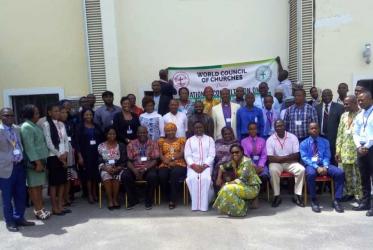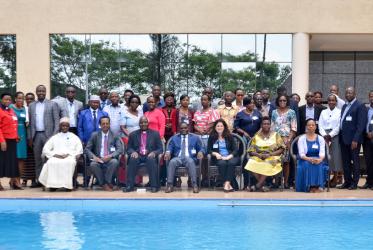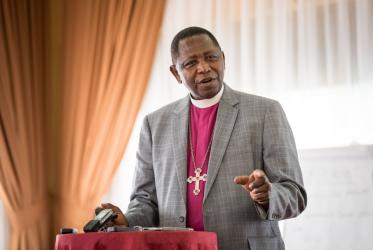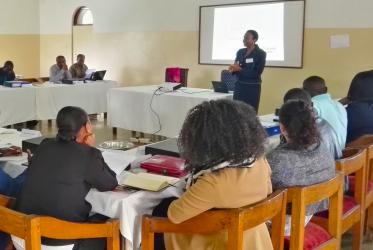Displaying 61 - 80 of 124
Worrying food shortages compel faith action
19 October 2018
In Kenya, issues of young people come to the forefront
19 October 2018
Congolese churches respond to Ebola outbreak
01 June 2018
Conversation on HIV “must continue,” Faith Networking Zone shows
07 December 2017
“God has brought ways of defeating HIV”
31 October 2017
Ugandan Mothers’ Union leader helps overcome HIV
31 October 2017
“Good healthcare a right, not a privilege,” says WCC-EAA
11 October 2017
“Facing the storm of HIV, we can move together, be agents of change”
06 September 2017
New study lifts up voices of small farmers in Mozambique
24 August 2017
African youth takes stand at first ever WCC Eco-School
03 August 2017
















